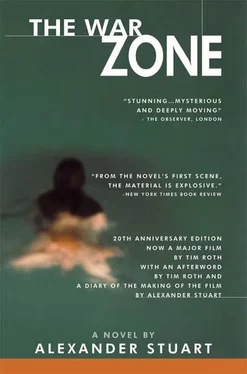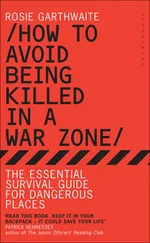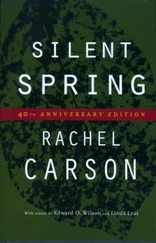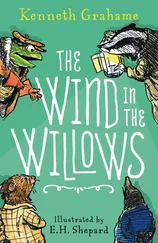The next ninety minutes physically exhaust me. The intensity of what Tim has achieved goes beyond my expectations, and the film surprises me in that it makes me cry.
This is my material, I’ve lived with it for more than ten years, yet what Tim and his cast have achieved moves me in ways I couldn’t foresee. The shelter scene in particular has a searing, harrowing dimension that is almost impossible to bear, and other, quieter moments – such as when Jessie sees Tom watching her from the beach, and says, ‘ I can see you ,’ – simply make me weep. When the final credits roll, and I read the dedication Tim and Dixie have included, ‘ With love to Joe Buffalo Stuart ’, I cannot control my tears.
I know that while I am watching the film, Tim is having dinner with Geoff Gilmore from Sundance at a nearby restaurant, L’Orangerie – and that by now Tim will know whether The War Zone will premiere at the festival in January 1999.
When the screening is over, Judd and I drive the few blocks to join them. We walk into the restaurant and over to Tim and I hug him, then literally burst into tears (my Dickie Attenborough moment!). I tell him that I don’t think I’ll be able to speak for several minutes, and he leads me away to the bar to give me time to breathe.
Finally I tell him that I love the film, that Ilene’s description of it as ‘almost flawless’ is entirely accurate. Tim, in turn, tells me that Geoff Gilmore feels the same – that the film is extraordinary and important, and he will premiere it at Sundance in such a way as to get it the maximum attention.
•
Monday September 14, 1998
Tim screens The War Zone this morning for a small group of friends, and this time I bring Charong to see it, too.
Watching it a second time is even more painful than the first, but I have no idea how Charong will react – she is not a big fan of Hollywood movies, and is critical of films in general.
At the end, as the closing credits roll, I look at her, and we both burst into tears. I hold her hand as we cry, then join Tim and our friends – plus our new six-week-old American Eskimo puppy, Stoli (whom the projectionist kindly looked after during the screening) – for a much-needed drink at a restaurant next door on Sunset Boulevard. ‘It’s a really strong film,’ Charong tells me. ‘It’s really true to the essence of the book.’
Only later in the day, when I call our friend, Spike Denton, in London to tell him how much we cried, do I begin to see the humor in the situation – Spike mutters darkly about these ‘luvvies’ who call him up, weeping at their own movie!
•
Monday January 25, 1999
Charong and I are in Park City, Utah, for the Sundance Film Festival, staying at an unbelievably beautiful ski lodge that Film Four has rented for the entire War Zone crew – Tim and Nikki, Ray and ‘ My E-laine ’ (his wife), Sarah Radclyffe, Dixie Linder, Seamus McGarvey, our composer Simon Boswell, our assistant editor Peter Christelis, and a whole bunch of Tim’s friends, including our trusted early soundingboard, Margaret Hussey, who have all flown in for the event.
The house is huge, with a pool table and hot tub on the ground floor next to our bedroom, but you could cut the tension in it with a knife at about 6:00 p.m. tonight. The War Zone will premiere at 9:30 p.m. in a 1,300 capacity movie theater, and we have no idea how the sometimes hostile, film-industry-dominated Sundance audience will respond. A deliberate policy of Tim’s and Paul Webster’s at Film Four has been to hold very limited preview screenings of the film – no press so far, only a few close friends and colleagues, and rarely more than six or seven people at a time. So the prospect of a large audience responding to it is a huge unknown.
We gather at a Park City restaurant for a pre-screening dinner at which very few of us have any appetite, then drive along snow-lined roads to the Eccles Theatre, where the film is screening.
Friends of mine, including Susan Ruskin, with whom I stayed the night I first met Tim, and my wonderful agent of many years, Charles Walker, who has known me since before Joe was sick, have come to Sundance for the screening, and hug me now before the show begins.
Sadly, Dixie cannot be present for the premiere of the film that has consumed two years of her life – she has been severely struck by the stomach flu that is going around Sundance, and has been forced to stay at the house.
The film plays to a stillness and a silence which are extraordinary. There are a few walkouts, as we have expected there would be, but not that many. At the end of the screening, when Tim and Ray go up on stage to answer questions from the audience, the response is emotional and respectful, the questions intelligent and concerned with serious aspects of abuse.
Now we know for sure that the film has the power to hold a large audience.
•
Wednesday January 27, 1999
My birthday, and a sense of real celebration at Sundance. We hold our third screening in Salt Lake City tonight, and the audience is even more emotional than at the first two.
We all answer questions on stage after the film, including several from people who have been abused themselves and who thank us for making it. Although we are not in competition at the festival, several jury members have told Tim that they love the film and would give it every prize if they could.
•
Thursday February 4, 1999
We’ve had a week of astonishing reviews in the wake of Sundance. In Britain, the press has responded with real intelligence. The Telegraph considers Tim’s debut as director ‘remarkable’: ‘ He gets perfectly judged performances of wrenching power out of his actors .’ Derek Malcolm’s Guardian article is headed, ‘ Figgis and Roth light up Sundance ’. Perhaps more surprisingly, the Daily Mail ’s Baz Bamigboye wants to campaign for the film to be seen by those he feels it would most help, abused children: ‘ The War Zone is a film that must be seen and debated because it speaks a truth about an evil that often goes unhindered in our society .’
The reviews in the States are no less powerful. The film-industry trade paper, the Hollywood Reporter , runs a celebratory review which talks about the film’s ‘ hard forged eloquence ’. Its rival, the other major industry paper, Daily Variety , publishes a review we could not have written ourselves, declaring it ‘ a superior, brooding family drama worthy of Eugene O’Neill and Tennessee Williams ’. (Amusingly, Tim reads me this over the phone while I shop for plants for our garden at Home Depot on Sunset Boulevard.)
We always knew The War Zone would be a challenging, painful film for audiences to watch – but now we know, too, that it has been received in the spirit in which it was made.
Paradoxically, it also marks the end of a deeply significant period in my life, spanning fatherhood, my son’s life and death, and a new beginning in America. Along with my pleasure and pride in the film comes an undeniable sense of loss, of letting go, and a determination to move on – to other projects, other concerns. To paraphrase Richard Nixon, I won’t have The War Zone to kick around any more.
Alexander Stuart June 1999
Two weeks later, the film won a special jury prize at the Berlin Film Festival – although it was not in competition. It was invited to screen at a special performance as part of Directors’ Fortnight at the 1999 Cannes Film Festival – an honor for Tim, since Cannes usually will not show films that have previously screened in Europe.
Читать дальше












